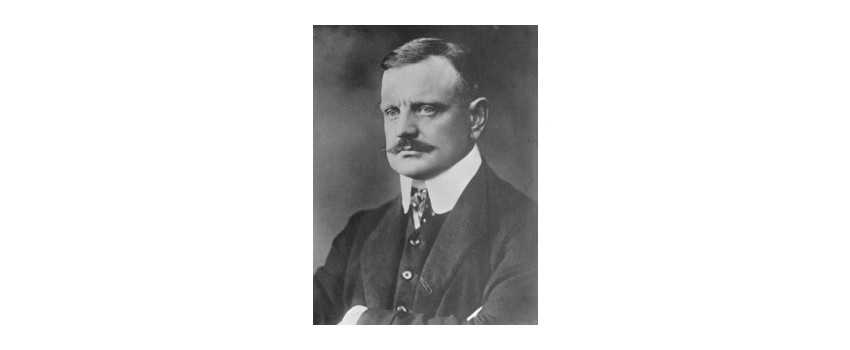Sibelius, Violin Concerto In D Minor Op. 47 (Robert Lienau Musikverlag)
Sibelius, Violin Concerto in D minor Op. 47 (Robert Lienau Musikverlag)
Jean Sibelius, born on December 8th 1865, was a renowned Finnish composer who played a pivotal role in shaping Finland's national identity during its fight for independence from Russia. Considered Finland's greatest composer, Sibelius's music captivates audiences worldwide.
Early Life and Musical Journey
Jean Sibelius was born in Hämeenlinna, Finland, and displayed a passion for music from a young age. He received his first violin at nine and soon began composing his music. Sibelius's early influences were rooted in the late Romantic and early modern periods, with composers such as Tchaikovsky and Wagner shaping his musical style.
Musical Education and Influences
Sibelius's formal musical education began at the Helsinki Music Institute, where he studied composition under Martin Wegelius. During this time, he also developed a deep appreciation for Finnish folk music, greatly influencing his compositions. Sibelius's exposure to the works of Finnish national epic, the Kalevala, and Nordic mythology further fueled his passion for creating music that celebrated Finland's cultural heritage.
Rise to Prominence
Sibelius's breakthrough came in 1892 when his symphonic poem, "Kullervo," was performed critically. This choral symphony, based on characters from the Kalevala, showcased Sibelius's unique ability to weave Finnish folklore into his compositions. Following this success, Sibelius's career soared, and he became Finland's most celebrated composer.
Notable Works
Jean Sibelius's musical repertoire spans many genres, including symphonies, symphonic poems, concertos, chamber music, piano music, vocal compositions, and even opera. Here are some of his most notable works:
Symphonies
Sibelius's symphonies are considered the cornerstone of his oeuvre. Comprising seven symphonies, each with its distinct character, they showcase his mastery of orchestration and ability to evoke powerful emotions. The most famous among them is Symphony No. 2 in D major, which embodies the spirit of Finnish nationalism.
Symphonic Poems
In addition to his symphonies, Sibelius composed a series of symphonic poems that vividly depict Finnish landscapes and mythology. "Finlandia," his most renowned symphonic poem, expresses the Finnish people's struggle for independence and has become a symbol of national pride.
Concertos
Sibelius's Violin Concerto is hailed as one of the greatest works in the violin repertoire. Its sweeping melodies and technical challenges make it a favourite among virtuoso violinists. Additionally, Sibelius composed a lesser-known but equally captivating Piano Concerto in D minor.
Chamber Music and Piano Works
Sibelius's chamber music compositions, such as the String Quartet in D minor and the Piano Quintet in G minor, exhibit his skill in crafting intimate and expressive musical conversations. His piano works, including the "Kyllikki" cycle and the "Impromptus," showcase his lyrical and introspective side.
Vocal Compositions and Incidental Music
Sibelius composed over a hundred songs for voice and piano, often drawing inspiration from Finnish poetry and nature. His incidental music for plays, such as "The Maid in the Tower," added depth and emotion to theatrical productions.
The "Silence of Järvenpää"
Despite his early success, Sibelius's output declined significantly after completing his Seventh Symphony in 1924. The reasons behind this decline remain a subject of debate among music scholars. Some attribute it to personal struggles and health issues, while others believe it was a conscious decision to withdraw from the public eye. Nevertheless, Sibelius continued tending to his existing works and explored new avenues, including Masonic ritual music.
Legacy and Recognition
Jean Sibelius's contribution to Finnish music and culture is immeasurable. To honour his enduring legacy, Finland celebrates the "Day of Finnish Music" on his birthday, December 8th. In 2015, the country marked the composer's 150th birthday with a series of special concerts and events in Helsinki. Sibelius's likeness also graced the Finnish 100-mark note until the adoption of the euro in 2002.
Conclusion
Jean Sibelius's indelible mark on the world of music, particularly in Finland, is a testament to his genius and the power of his compositions. Through his symphonies, symphonic poems, concertos, and other works, Sibelius captured the essence of Finnish culture and played a pivotal role in shaping the country's national identity. His music inspires and resonates with audiences worldwide, ensuring that his legacy endures for generations to come.

Sibelius, Violin Concerto in D minor Op. 47 (Robert Lienau Musikverlag)